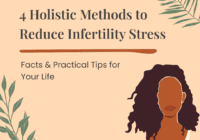It’s never too early to start thinking about your reproductive health and how to support fertility. Although 1 in 6 couples in Canada experience infertility, few people are aware of how their choices and behaviours impact their current and future reproductive health.
Infertility is not just an old person’s issue, nor is it just a women’s issue. In fact, in 50% of infertility cases, people with penises are either the sole or a contributing cause.
Dr. Tanya Williams Fertility Centre wants to share that people of all genders and ages have the power to influence their current and future fertility. In this article, Dr. Tanya recommends 7 ways to support fertility before and whilst trying to conceive.
1. Eat a healthy diet to support fertility
If you are pregnant or trying to conceive, nutrition is critical to support fertility. Pre-pregnancy, trans fat and “unhealthy diets” were found to have negative effects on women’s fertility. Focus on nutrition and health before and during pregnancy to support ideal fetal growth, better obstetrical outcomes, increased perinatal survival, and the long-term possibility of better maternal and child health. A healthy maternal diet before and during pregnancy is also linked to a lower risk of pregnancy disorders, including gestational diabetes mellitus (GDM), preterm birth, obesity-related complications, and, in certain populations, preeclampsia and gestational hypertension.
On the other hand, poor maternal nutrition is has causal links to abnormal fetal growth patterns, including low birthweight, small for gestational age or fetal growth restriction, macrosomia, and large for gestational age. All of these outcomes link to a higher risk of childhood and adult chronic diseases.
For men, healthy diets have been found to improve semen quality, while diets high in saturated or trans fat are linked to lower semen quality.
But what is a healthy diet? Nutrition is a controversial topic because of cultural and ideological differences, varied access to nutrition, contradictory research, and the heavy influence of the media. Keeping in mind that all research has its limitations, and that each body is unique, we can rely on some common dietary elements which have been studied in relation to pregnancy.
To support fertility and healthy pregnancy with optimal perinatal outcomes, it’s important to eat a diet with balanced macronutrients. According to an expert review in the American Journal of Obstetrics & Gynecology, a healthy diet includes vegetables, fruits, whole grains, nuts, legumes, fish, oils enriched in monounsaturated fat, and fiber, while reducing fatty red meat and refined grains. It also avoids simple sugars, processed foods, and trans and saturated fats.
2. Exercise regularly
Regular exercise can be key to reducing stress, maintaining healthy body weight, strengthening bones and muscles, regulating the body, and improving overall health. Because a healthy body is a much more supportive environment for reproduction, we recommend exercising regularly to help support your fertility.
But what does regular exercise mean? The salient point is to avoid sedentarism and move your body. Technically, in a given week, an adult requires 1hr 30mins of moderate-intensity physical activity and 2 days of muscle strengthening activity, according to the current Physical Activity Guidelines for Americans.
Although regular exercise is an important pillar of overall health, we must note that there is research which has found negative effects of excessive training load on male and female fertility. Reproductive dysfunction is also more common amongst athletes than nonathletes. Having said that, there are few studies that suggest physical activity causes infertility.
To be safe, when it comes to exercise, we suggest operating under the principle of, “everthing in moderation”, and following the guidelines mentioned above as best as you can.
3. Maintain a healthy body weight
Being underweight or overweight can create difficulties when trying to conceive, typically because of the ovulation problems that result. A normal body mass index (BMI) should be between 19 and 24.9. Below 19 is underweight, 25-29.9 is overweight, and over 30 is obese.
Having a BMI of 18.5 or lower often creates menstrual cycle irregularity and may stop ovulation completely. If you have a BMI of <18.5, we recommend working with your doctor to find the reason and trying to fix it.
A BMI in the obese range can also cause irregularity in menstrual cycles and ovulation. But obesity causes more issues than just anovulation. Pregnancy rates are lower and miscarriage rates higher amongst obese women. Weight loss in obese women has been shown to improve the success of natural conception. Obese women have a higher risk of developing pregnancy-induced (gestational) diabetes and high blood pressure (pre-eclampsia). Moreover, there is a greater likelihood of cesarean section, and children of obese mothers have a higher risk of certain birth defects and high birth weight. If you’re a person living with obesity, seeing a healthcare professional before trying to conceive can help you identify other obesity-related disorders which affect pregnancy, for example thyroid disease, hypertension, insulin resistance, or diabetes.
For men, obesity may be linked to altered testosterone levels and other hormones that are needed for reproduction. Low sperm counts and motility are also more common in overweight and obese men than normal-weight men.
4. Avoid smoking to support fertility
For women, smoking is strongly linked to infertility and increased risk of spontaneous abortion and ectopic pregnancy. Smoking seems to speed up the loss of reproductive function and may onset menopause 1-4 years earlier than normal. It also has a negative effect on assisted reproductive technology (ART) results. In fact, smokers need almost double the IVF rounds as nonsmokers to conceive.
Although there is not enough evidence to conclude that smoking decreases male fertility, there is reasonable evidence of lower semen parameters and results of sperm function tests in smokers compared to nonsmokers, with the effects varying based on the dose.
Unfortunately, your exposure to second-hand smoke matters, too. Nonsmokers with excessive exposure to tobacco smoke may have equal reproductive challenges to smokers.
If you’re a smoker, we recommend first speaking to your doctor about varenicline, bupropion, and combination nicotine therapy to quit, as randomized trials have found these to be approximately twice as effective as placebo. If you’re a nonsmoker, try to limit your exposure to tobacco smoke as much as possible.
5. Protect yourself against STIs
Sexually transmitted infections (STIs) pass between people through intimate sexual contact, and are a leading cause of infertility. 1 in 3 sexually active people will have an STI by age 24. Common STIs are gonorrhoea, chlamydia, syphilis, genital warts, trichomoniasis, hepatitis C & B, herpes simplex virus (HSV or herpes), HIV, scabies, and pubic lice.
How do STIs affect fertility? For females, some STIs can produce pelvic infections that cause infertility by damaging the fallopian tubes and increasing ectopic pregnancy risk (the embryo attaches outside the uterus). STIs often have few or no visible symptoms and therefore go undiagnosed. For males, STIs can block the ductal system that transports sperm.
With early diagnosis, some STIs are treatable with simple antibiotics. However, undetected STIs can cause permanent, life-altering, or life-threatening damage. If you are sexually active, besides using condoms, get regular STI tests, either with your doctor or at a sexual health clinic.
6. Identify any “fertility-lowering” conditions early
There are multiple medical conditions which might lower your fertility. Managing them can improve your chances of conceiving. The most common female infertility driver is polycystic ovarian syndrome (PCOS), which is caused by a hormone imbalance that can disrupt normal ovulation. Other fertility-lowering conditions include endometriosis (when uterine tissue grows outside of the uterus and may impair egg growth, fertilization, and/or implantation), a diminished ovarian reserve, ovulatory dysfunction, and pelvic inflammatory disease. Congenital anomalies (birth defects) which involve the uterine structure and uterine fibroids can be linked to repeated miscarriages.
For men, the most common drivers of infertility are azoospermia (the body does not produce sperm cells) and oligospermia (the body produces few sperm cells). The sperm cells may also be malformed or die before reaching the egg. More rarely, men may have genetic diseases such as cystic fibrosis or a chromosomal abnormality, which can cause infertility.
We recommend keeping up to date with your doctor to identify any medical conditions that might lower your fertility. When identifying infertility causes, women should see a reproductive endocrinologist, and men, a urologist specializing in fertility.
7. Avoid endocrine disrupting chemicals (EDCs)
Canadians are exposed daily to hundreds of toxic chemicals through our environment, food, and everyday household and personal care products. The types of chemicals which negatively affect our hormones are called endocrine disruptors. Endocrine disruptors mimic or interfere with your body’s endocrine system which creates and regulates hormones.
Environmental toxins affect fertility by altering a woman’s hormones and menstrual cycle. They also impact sperm quality, as well as alter a fetus or child’s development. Some toxins can pass from mother to fetus and produce genetic mutations. The most common EDCs are BPA, parabens, phthalates, pesticides/herbicides, and PBDES/flame retardants.
Everyone is exposed to EDCs, but what you eat, where you live, and your workplace impacts your exposure. For instance, you may have a higher exposure if you live in a highly polluted area; work outdoors or with pesticides; work with chemicals, radiation, or heavy metals; or live in an economically disadvantaged area.
To limit your exposure, consider the food, cleaning products, and chemicals around you. Read label warnings and get advice on potential effects.
We recommend taking as many of these steps as possible to avoid EDCs:
- Eat more organic foods with lower pesticide levels
- Avoid canned and processed foods
- Eat less deep-sea fish with high mercury levels (e.g. tuna, swordfish, shark, king mackerel, tilefish)
- Know the ingredients in your personal care products
- Avoid nonstick cooking pans to prevent PFAS exposure
- Be careful with your plastic containers to limit phthalates and parabens
- Check your house for lead-based paint
- Avoid handling thermal paper receipts
- Replace damaged furniture, buy natural products that are less flammable, and recirculate indoor air to prevent flame retardant exposure
- If working with chemicals, use gloves, glasses, and protective equipment
For more information on everyday endocrine disrupting chemicals, read our previous blog post.
Taking charge to support fertility
Although infertility can often feel like a helpless condition, we have some agency in supporting our own fertility. By thinking about these health factors early, you have the potential to increase your chances of getting pregnant, staying pregnant, and delivering a healthy child. The key is believing in the behavioural changes you make today that will support your family’s health tomorrow.






